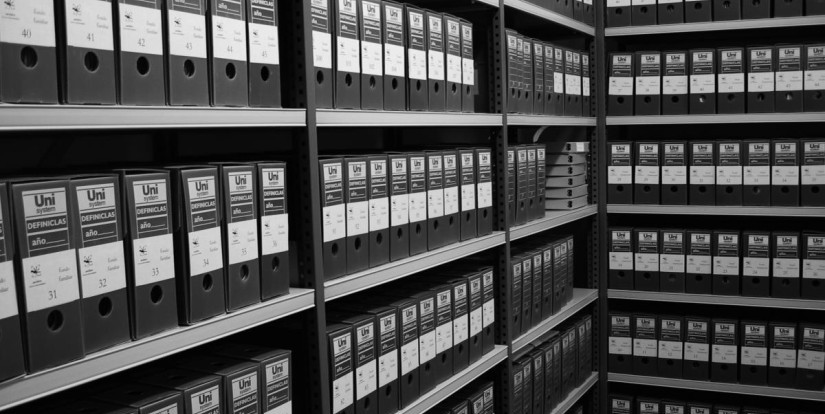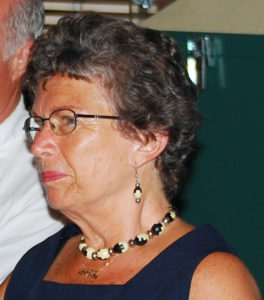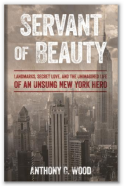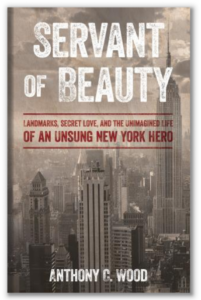Resource Library

The Resource Library is a collection of selected research papers, monographs, theses, dissertations, and other resources on topics related to preservation history and archival best practices.
Collected over the years, these high-quality scholarly works were created by independent researchers, academics, writers, and filmmakers. Supplementing these learning tools is a list of Archival Resources that grew out of a series of archival workshops to help small not-for-profit organizations active in preservation in New York City become better curators of their own records and history. These resources provide assistance in addressing various issues prevalent in small institutional or personal archives.
We are always interested in featuring new resources on preservation history or archival best practices on our website. Email us to learn how you can get your work included in our Resource Library.
Skip To Preservation History Resources >Skip to General Archival Resources >
Download List of all Resources >
Roberta Brandes Gratz Articles Collection
Roberta Brandes Gratz

Between 1965 and 1993, journalist, author, and urbanist Roberta Brandes Gratz wrote hundreds of articles for the New York Post focused on historic preservation-related concerns. The Archive Project is privileged to preserve and offer access to this unique collection. Gratz’s articles, linked below by year with permission, cover the ebbs and flows, as well as trends and cornerstones, of the historic preservation movement in New York City from the late 1960s to the early 1990s, with a heavy emphasis on events in the mid 1970s.
Preservation History Resources
“Fighting for a Landmarks Law” Podcast Episode
From the podcast "Wrecking Ball"
In this episode of Wrecking Ball – a podcast series featuring tales of preservation, the law, and the places New Yorkers love – host Adrian Untermyer welcomes author-historians Christina Greer and Anthony C. Wood to tell the raucous story of how ordinary people pulled together to craft New York City’s Landmarks Law, which safeguards historic buildings, neighborhoods, and landscapes to this day.
100 Years of Preservation: A Conversation with Anthony C. Wood
recorded at a program cosponsored by the Greenwich Village Society for Historic Preservation and the New York Preservation Archive Project
This video captures a conversation with Anthony C. Wood, founder of the New York Preservation Archive Project on what led to the passage of New York City’s Landmarks Law, how it has affected the urban environment since, and the prognosis for preservation looking forward.
50 Years of Historic Preservation in New York City
by Ingrid Gould Ellen, Brian J. McCabe, and Eric Edward Stern
This report by the NYU Furman Center, released in March 2016, shows the extent of preservation in New York City and compares the land use, housing stock, demographic characteristics, and commercial property in historic districts with those in areas that are not regulated by the New York City Landmarks Preservation Commission.
A Proven Success: How the New York City Landmarks Law and Process Benefit the City
prepared by Gregory G. Dietrich for the Citizens Emergency Committee to Preserve Preservation
This study analyzes the New York City Landmarks Law and its economic, social, and environmental impact on the City and its residents.
Albert S. Bard and the Origin of Historic Preservation in New York
by Carol Clark
This article explores the drafting and wording of the Bard Act and its influence on New York City’s Landmarks Law.
Analyzing New York City Landmark Designations: A Review of Mayoral Influence and Policy from 1965 to the Present
by Village Preservation
This first-of-it’s-kind report by Village Preservation catalogs and analyzes 59 years of landmark designation in New York City and how it’s changed over time.
Battling for Brooklyn Heights
by Martin L. Schneider
This personal account describes how dedicated, passionate, and informed citizens took the future of their neighborhood into their own hands and successfully protected Brooklyn Heights from development pressures.
Brooklyn Is My Neighborhood: The Story of New York’s First Historic District
by Martin L. Schneider and Karl Junkersfeld
This video serves as a prelude to Martin Schneider’s “Battling for Brooklyn Heights,” which is also included in these resources.
Building and Rebuilding New York: The Radio Urbanism of Robert C. Weinberg, 1966-71
by Christopher Neville for NYPAP
This research project investigates Robert C. Weinberg’s role in the development of historic preservation in New York City.
Enforcement and the New York City Landmarks Law: Past, Present, and Future
by Benjamin Baccash
This thesis hopes to improve the enforcement procedures of the NYC Landmarks Preservation Commission (LPC) and further the protection of the historic resources under its regulation.
Fitch Forum on Preservation Law
compiled by the Widener Law Review
This Widener Law Review volume is based on selected papers presented at the 2011 Fitch Forum held at Columbia University that examined the role of preservation law on the 45th anniversary of the creation of New York City’s landmarks preservation legislation.
Historic Preservation: At the Core of a Dynamic New York City
prepared by PlaceEconomics
This report, released in May 2016 and prepared for the New York Landmarks Conservancy, quantifies the contributions of historic preservation to the economy, the environment, and the life of the nation’s greatest city.
In Defense of Preservation
This is a transcript of panel arguing for the value of historic preservation with Eric W. Allison, Dorothy Miner, Anthony C. Wood, and Jeffrey Kroessler at the Gotham History Festival on October 6, 2001.
New York City Landmarks Preservation Commission (1962-1999): Paradigm for Changing Attitudes Towards Historic Preservation
by Marjorie Pearson, Ph.D.
This study describes and analyzes the history of the New York City Landmarks Preservation Commission from its beginnings through the end of the 20th century.
New York: The Historic City
by the Historic City Committee
This report, prepared for the New York City Landmarks Preservation Commission in 1989, is an examination of the administration of the Landmarks Law and proposes a series of recommendations to improve the Commission’s work.
New York’s Pioneer of Planning and Preservation: How George McAneny Reshaped Manhattan and Inspired a Movement
by Charles Starks
This manuscript explores civic figure George McAneny‘s work and his profound influence on the 20th-century built environment of New York City, with a focus on past and present conflicts over planning and preservation. Funding for this project was provided by the New York Preservation Archive Project.
Our Vanishing Legacy
produced by Gordon Hyatt and WCBS-TV
This film was the first primetime broadcast advocating for preservation efforts in New York City. Originally airing on WCBS-TV on September 21, 1961, Our Vanishing Legacy looks at threats to the City’s architectural heritage and argues the need to enact a law to protect important landmark buildings.
Preservation Pioneers Oral History Collection
undertaken by the Greenwich Village Society for Historic Preservation
The Preservation Pioneers oral history collection was undertaken in the mid-1990s to document the memories of the women and men who led the nascent preservation movement for Greenwich Village.
Preservation Vision NYC: Final Report
prepared by Kirstin Sechler and Jon Calame for Minerva Partners
This report is a summary of discussions hosted by the Preservation Vision: NYC project, which invited interested citizens and preservation practitioners to think about the future of historic preservation practice in relation to the future of the city, creating a temporary forum for the profession to think concretely about its long-term goals.
Preserving New York: The City’s Landmarks Law Turns Fifty
by Grace Friary
This article, which originally appeared in Antiques & Fine Art XIV, no. 1 (15th Anniversary/Spring, 2015), is a brief history of the Landmarks Law in honor of the law’s 50th anniversary.
Public Space and Public Memory in New York’s City Hall Park
by Michele H. Bogart
This is an article from the Journal of Urban History, Vol. 25 No. 2 on City Hall Park and the African Burial Ground.
Rediscovering New York’s Art Deco Architecture with Anthony W. Robins
recorded at a program hosted by the Mechanics Institute and the Art Deco Society of New York
In this video recorded talk, historian and writer Anthony W. Robins discusses the rise of New York’s enthusiasm for Art Deco architecture and its journey to acceptance within historic preservation communities. Robins speaks about notable triumphs–such as the preservation of Radio City and the interiors of the Waldorf-Astoria–as well as significant restorations and regrettable losses.
Regulatory Capture: Watching a City Commission Lose Its Way
by the Society for the Architecture of the City and Compiled by Christabel Gough
This electronic book by the Society for the Architecture of the City offers a record of the New York City Landmark Preservation Commissions’ recent past.
Saving New York City’s Recent Past
by Jonathan Schifman
This thesis, written in a journalistic, creative nonfiction style, explores how New York City treats modern architecture under the Landmarks Law, referencing such buildings as 2 Columbus Circle, the Lever House, and University Village.
The Intersection of Affordable Housing and Historic Districts
prepared by ThinkBrooklyn
Released in May 2016 by the Historic Districts Council, this report analyzes data for New York City’s historic districts using U.S. Census Bureau affordability and income indicators including rental prices, income, and rental burden, as well as building-level affordability indicators for housing in privately-owned and publicly-subsidized rental developments.
The Origins of Brooklyn Bridge Park, 1986-1988
by Scott M. Hand and Otis Pratt Pearsall
This is the story of three pivotal years during which the Brooklyn Heights Association rallied a coalition of affected communities, civic groups, politicians, and engaged individuals to prevent the private development of the waterfront near Brooklyn Heights and instead create the Brooklyn Bridge Park.
Treasures of New York: The Landmarks Preservation Movement
produced by WNET/THIRTEEN
This documentary celebrated the 50th anniversary of New York City’s Landmarks Law in 2015 by exploring the historic preservation movement and the work of the City’s Landmarks Preservation Commission, which together have protected thousands of culturally- and historically-significant sites in all five boroughs of the New York City for the past half century.
WAMC’s Alan Chartock In Conversation with Anthony C. Wood
aired on WAMC Northeast Public Radio
This radio broadcast with Archive Project founder and chair Anthony C. Wood discusses the history and current state of the historic preservation movement.
General Archival Resources
The Value of Preserving Organizational Records
The Value of Corporate History
by George David Smith & Laurence E. Steadman
Explores the importance of planning for the future of a corporation (or not-for-profit) by looking to its past.
Download PDF
The Value of Corporate History
by George David Smith & Laurence E. Steadman
Explores the importance of planning for the future of a corporation (or not-for-profit) by looking to its past.
Developing and Maintaining an Organizational Archive
Documenting Community Organizations
prepared by the Central New York Library Resources Council Documentary Heritage Committee
Explores why an organization should keep a history, what records to keep, and how to make those choices.
Download PDF
Don’t Throw it Away!: Documenting and Preserving Organizational History
by Sandra Florand Young
This booklet encourages organizations to save and organize their records. and is intended to assist in the preparation of a plan for the organization and maintenance of current records and historic documents. It offers advice on setting up an in-house archives, as well as factors to consider should the organization want to deposit records in an institution.
Download PDF
Starting from Scratch: How to Create a Museum Archives
by Sammie L. Morris
This article, written for the non-archivist, provides the basics for starting an archival program.
Download PDF
Documenting Community Organizations
prepared by the Central New York Library Resources Council Documentary Heritage Committee
Explores why an organization should keep a history, what records to keep, and how to make those choices.
Don’t Throw it Away!: Documenting and Preserving Organizational History
by Sandra Florand Young
This booklet encourages organizations to save and organize their records. and is intended to assist in the preparation of a plan for the organization and maintenance of current records and historic documents. It offers advice on setting up an in-house archives, as well as factors to consider should the organization want to deposit records in an institution.
Starting from Scratch: How to Create a Museum Archives
by Sammie L. Morris
This article, written for the non-archivist, provides the basics for starting an archival program.
Records Management Considerations for Not-for-Profit Organizations
An Introduction to Records Management for Nonprofit Organizations
prepared by Northeastern University
This booklet is intended to assist small, not-for-profit organizations that wish to improve control over their records.
Download PDF
Archival Policy Manual
prepared by Historical Foundation of the Cumberland Presbyterian Church
This is sample archival policy manual for a small not-for-profit organization.
Download PDF
Document Retention and Destruction Policies for Nonprofit Organizations
prepared by the Watershed Institute
This guide explains document retention and destruction policies, why they are important, and how to create them.
Download PDF
Document Retention and Destruction Policy
prepared by the University of Wisconsin Center for Community and Economic Development
This is a sample document retention and destruction policy for a small institutional department.
Download PDF
Records Retention and Disposition Guidelines
prepared by the Collaborative Electronic Records Project at the Rockefeller Archive Center
This document includes a schedule and guidelines for a typical not‐for-profit’s needs for record retention.
Download PDF
An Introduction to Records Management for Nonprofit Organizations
prepared by Northeastern University
This booklet is intended to assist small, not-for-profit organizations that wish to improve control over their records.
Archival Policy Manual
prepared by Historical Foundation of the Cumberland Presbyterian Church
This is sample archival policy manual for a small not-for-profit organization.
Document Retention and Destruction Policies for Nonprofit Organizations
prepared by the Watershed Institute
This guide explains document retention and destruction policies, why they are important, and how to create them.
Document Retention and Destruction Policy
prepared by the University of Wisconsin Center for Community and Economic Development
This is a sample document retention and destruction policy for a small institutional department.
Records Retention and Disposition Guidelines
prepared by the Collaborative Electronic Records Project at the Rockefeller Archive Center
This document includes a schedule and guidelines for a typical not‐for-profit’s needs for record retention.
General Archival Preservation and Collections Care
Assessing Preservation Needs: A Self-Survey Guide
by Beth Patkus
This guide is intended to help small- to medium-sized institutions identify their preservation needs and develop systematic preservation programs for their historical collections.
Download PDF
IP Media Storage Quick Reference
by Peter Z. Adelstein
This guide explains the role of storage conditions—temperature, relative humidity, and air quality—in the physical survival of photographs, films, audio and video tapes, CDs, and DVDs.
Download PDF
The Storage Guide for Color Photographic Materials
by James C. Reilly
This book, with its accompanying wheel of environmental conditions, provides an overview of the stability of today’s color photographic materials and explains how and why color images fade, why they need special storage, and what can be done to make them last as long as possible.
Download PDF
Assessing Preservation Needs: A Self-Survey Guide
by Beth Patkus
This guide is intended to help small- to medium-sized institutions identify their preservation needs and develop systematic preservation programs for their historical collections.
IP Media Storage Quick Reference
by Peter Z. Adelstein
This guide explains the role of storage conditions—temperature, relative humidity, and air quality—in the physical survival of photographs, films, audio and video tapes, CDs, and DVDs.
The Storage Guide for Color Photographic Materials
by James C. Reilly
This book, with its accompanying wheel of environmental conditions, provides an overview of the stability of today’s color photographic materials and explains how and why color images fade, why they need special storage, and what can be done to make them last as long as possible.
Digital Preservation
Email Guidelines for Managers and Employees
prepared by the Collaborative Electronic Records Project at the Rockefeller Archive Center
This document sets forth archivally-acceptable methods of managing email, and may be adopted, in whole or in part, by any not-for-profit organization.
Download PDF
Handbook for Digital Projects: A Management Tool for Preservation and Access
prepared by the Northeast Document Conservation Center
This handbook provides a guide to managing digital conversion projects, including tips and advice from institutions that have engaged in such projects.
Download PDF
Preservation in the Age of Google: Digitization, Digital Preservation, and Dilemmas
by Paul Conway
This article frames four dilemmas for preservation relating to the impact of environmental storage, new challenges to preservation quality, threats to audiovisual heritage, and an emerging expertise gap.
Download PDF
Preserving Email
by Christopher J. Prom
This report outlines practical steps in creating an effective email preservation program to preserve email for its legal, administrative and/or historical value.
Download PDF
Email Guidelines for Managers and Employees
prepared by the Collaborative Electronic Records Project at the Rockefeller Archive Center
This document sets forth archivally-acceptable methods of managing email, and may be adopted, in whole or in part, by any not-for-profit organization.
Handbook for Digital Projects: A Management Tool for Preservation and Access
prepared by the Northeast Document Conservation Center
This handbook provides a guide to managing digital conversion projects, including tips and advice from institutions that have engaged in such projects.
Preservation in the Age of Google: Digitization, Digital Preservation, and Dilemmas
by Paul Conway
This article frames four dilemmas for preservation relating to the impact of environmental storage, new challenges to preservation quality, threats to audiovisual heritage, and an emerging expertise gap.
Preserving Email
by Christopher J. Prom
This report outlines practical steps in creating an effective email preservation program to preserve email for its legal, administrative and/or historical value.
Oral History
An Oral History Bibliography
prepared by the Columbia University Center for Oral History
This research guide, developed in 2009, lists a wide array of resources on the various aspects of oral history projects.
Download PDF
Oral History & Preservation: A Guide
by the New York Preservation Archive Project
This manual helps to introduce the field of historic preservation to the value of conducting oral history projects, and to provide a few key tools to get started. Our goal is to inspire new initiatives in locations across the country that will document the stories of preservationists. Toward that end, this manual covers recommended resources, lessons learned from our own experience with oral history work, and important steps in project planning.
Download PDF
Oral History Association
The Oral History Association maintains a list of valuable resources on their website, which includes online guides to doing oral history, oral history centers and collections, and regional and international oral history organizations.
External Link >
Oral History Philosophy, Procedures and Evaluation
prepared by the Columbia University Center for Oral History
This brief introduction to oral history practice describes the important stages of research, interviews, processing and evaluation.
Download PDF
Preservation Pioneers Oral History Collection
undertaken by the Greenwich Village Society for Historic Preservation
The Preservation Pioneers oral history collection was undertaken in the mid-1990s to document the memories of the women and men who led the nascent preservation movement for Greenwich Village.
External Link >
Principles & Best Practices
prepared by the Oral History Association
The field of oral history has a strong internal code of ethics. Practitioners are also actively engaged in examining and improving their methods as the field changes and grows. A good first stop for up-to-date explanations and descriptions of important practices is the Oral History Association’s Principles & Best Practices.
Download PDF
Teaching Oral History – Telling Lives Curriculum Guide
written by Gerry Albarelli and Amy Starecheski for the Columbia University Center for Oral History
This curriculum guide, written in 2005 and revised in 2013, grew out of the work done by the Columbia University Center for Oral History over several years to engage with New Yorker’s memories of September 11, 2001. The guide explains clearly what oral history is, how to conduct interviews, structure projects, and make use of oral history concepts in the classroom.
Download PDF
Transcribing Oral History Interviews
prepared by the Columbia University Center for Oral History
This style guide, prepared in 2018, describes core concepts and best practices in the transcription process. It is also a valuable reference for transcription standards that will ensure creation of clear, professional records.
Download PDF
An Oral History Bibliography
prepared by the Columbia University Center for Oral History
This research guide, developed in 2009, lists a wide array of resources on the various aspects of oral history projects.
Oral History & Preservation: A Guide
by the New York Preservation Archive Project
This manual helps to introduce the field of historic preservation to the value of conducting oral history projects, and to provide a few key tools to get started. Our goal is to inspire new initiatives in locations across the country that will document the stories of preservationists. Toward that end, this manual covers recommended resources, lessons learned from our own experience with oral history work, and important steps in project planning.
Oral History Association
The Oral History Association maintains a list of valuable resources on their website, which includes online guides to doing oral history, oral history centers and collections, and regional and international oral history organizations.
Oral History Philosophy, Procedures and Evaluation
prepared by the Columbia University Center for Oral History
This brief introduction to oral history practice describes the important stages of research, interviews, processing and evaluation.
Preservation Pioneers Oral History Collection
undertaken by the Greenwich Village Society for Historic Preservation
The Preservation Pioneers oral history collection was undertaken in the mid-1990s to document the memories of the women and men who led the nascent preservation movement for Greenwich Village.
Principles & Best Practices
prepared by the Oral History Association
The field of oral history has a strong internal code of ethics. Practitioners are also actively engaged in examining and improving their methods as the field changes and grows. A good first stop for up-to-date explanations and descriptions of important practices is the Oral History Association’s Principles & Best Practices.
Teaching Oral History – Telling Lives Curriculum Guide
written by Gerry Albarelli and Amy Starecheski for the Columbia University Center for Oral History
This curriculum guide, written in 2005 and revised in 2013, grew out of the work done by the Columbia University Center for Oral History over several years to engage with New Yorker’s memories of September 11, 2001. The guide explains clearly what oral history is, how to conduct interviews, structure projects, and make use of oral history concepts in the classroom.
Transcribing Oral History Interviews
prepared by the Columbia University Center for Oral History
This style guide, prepared in 2018, describes core concepts and best practices in the transcription process. It is also a valuable reference for transcription standards that will ensure creation of clear, professional records.
Sources for Funding
Institute of Museum and Library Services
The mission of the Institute of Museum and Library Services is to inspire libraries and museums to advance innovation, lifelong learning, and cultural and civic engagement. They provide leadership through research, policy development, and grant making.
External Link >
National Endowment for the Humanities Preservation Assistance Grants for Smaller Institutions
Preservation Assistance Grants help small and mid-sized institutions—such as libraries, museums, historical societies, archival repositories, cultural organizations, town and county records offices, and colleges and universities—improve their ability to preserve and care for their significant humanities collections.
External Link >
National Historical Publications & Records Commission
Congress established the National Historical Publications & Records Commission grants program to promote the preservation and use of America’s documentary heritage.
External Link >
New York Council for the Humanities
Through two competitive grant programs, the New York Council for Humanities offers nimble and responsive grants to support the diverse arts and culture sector of New York State.
External Link >
New York State Archives
The New York State Archives offers grants and awards to support, promote, and recognize sound archival and records management practices, as well as to encourage creative and valuable uses of archival records.
External Link >
New York State Council on the Arts
NYSCA accepts grant proposals each year from not-for-profit organizations incorporated in New York State. Grants are organized into discipline-based funding areas, including: Architecture + Design, Arts Education, Dance, Electronic Media & Film, Facilities, Folk Arts, Individual Artists, Literature, Museum, Music, Presenting, Special Arts Services, State & Local Partnerships, Theatre, and Visual Arts.
External Link >
New York State Office of Parks, Recreation & Historic Preservation
The New York State Office of Parks, Recreation & Historic Preservation offers a variety of grant opportunities, workshops, and awards.
External Link >
The New York State Program for the Conservation and Preservation of Library Research Materials
The New York State Program for the Conservation and Preservation of Library Research Materials provides State funding for libraries and other organizations engaged in efforts to preserve deteriorating library research materials.
External Link >
Institute of Museum and Library Services
The mission of the Institute of Museum and Library Services is to inspire libraries and museums to advance innovation, lifelong learning, and cultural and civic engagement. They provide leadership through research, policy development, and grant making.
National Endowment for the Humanities Preservation Assistance Grants for Smaller Institutions
Preservation Assistance Grants help small and mid-sized institutions—such as libraries, museums, historical societies, archival repositories, cultural organizations, town and county records offices, and colleges and universities—improve their ability to preserve and care for their significant humanities collections.
National Historical Publications & Records Commission
Congress established the National Historical Publications & Records Commission grants program to promote the preservation and use of America’s documentary heritage.
New York Council for the Humanities
Through two competitive grant programs, the New York Council for Humanities offers nimble and responsive grants to support the diverse arts and culture sector of New York State.
New York State Archives
The New York State Archives offers grants and awards to support, promote, and recognize sound archival and records management practices, as well as to encourage creative and valuable uses of archival records.
New York State Council on the Arts
NYSCA accepts grant proposals each year from not-for-profit organizations incorporated in New York State. Grants are organized into discipline-based funding areas, including: Architecture + Design, Arts Education, Dance, Electronic Media & Film, Facilities, Folk Arts, Individual Artists, Literature, Museum, Music, Presenting, Special Arts Services, State & Local Partnerships, Theatre, and Visual Arts.
New York State Office of Parks, Recreation & Historic Preservation
The New York State Office of Parks, Recreation & Historic Preservation offers a variety of grant opportunities, workshops, and awards.
The New York State Program for the Conservation and Preservation of Library Research Materials
The New York State Program for the Conservation and Preservation of Library Research Materials provides State funding for libraries and other organizations engaged in efforts to preserve deteriorating library research materials.
Other Archival Resources
ArchivesWiki
ArchivesWiki, sponsored by the American Historical Association, is a clearinghouse of information about archival resources throughout the world.
External Link >
Archivists Round Table of Metropolitan New York
Founded in 1979, the Archivists Round Table of Metropolitan New York is a not-for-profit organization representing a diverse group of more than 650 archivists, librarians, and records managers in the New York metropolitan area.
External Link >
Columbia University’s Archival Collections
Columbia University’s archival collections include over 12 million volumes, over 160,000 current journals and serials, and an extensive collection of electronic resources, manuscripts, rare books, microforms, maps, and graphic and audiovisual materials.
External Link >
Digital Curation and Preservation Bibliography
by Charles W. Bailey, Jr.
This bibliography presents selected articles, books, and technical reports that are useful in understanding digital curation and preservation.
External Link >
New York Public Library Manuscripts & Archives Division
The New York Public Library has more than 56,800 linear feet of material in nearly every format imaginable. Through this “Archives Portal,” one can search these vast holdings, initiate a research visit, submit a query to an archivist, and access digitized material.
External Link >
New York State Archives
The New York State Archives leads efforts to manage, preserve, ensure open access to, and promote the wide use of, records that support information needs and document the history, governments, events, and peoples of New York State.
External Link >
Society of American Archivists
Founded in 1936, the Society of American Archivists is North America’s oldest and largest national professional association dedicated to the needs and interests of archives and archivists.
External Link >
ArchivesWiki
ArchivesWiki, sponsored by the American Historical Association, is a clearinghouse of information about archival resources throughout the world.
Archivists Round Table of Metropolitan New York
Founded in 1979, the Archivists Round Table of Metropolitan New York is a not-for-profit organization representing a diverse group of more than 650 archivists, librarians, and records managers in the New York metropolitan area.
Columbia University’s Archival Collections
Columbia University’s archival collections include over 12 million volumes, over 160,000 current journals and serials, and an extensive collection of electronic resources, manuscripts, rare books, microforms, maps, and graphic and audiovisual materials.
Digital Curation and Preservation Bibliography
by Charles W. Bailey, Jr.
This bibliography presents selected articles, books, and technical reports that are useful in understanding digital curation and preservation.
New York Public Library Manuscripts & Archives Division
The New York Public Library has more than 56,800 linear feet of material in nearly every format imaginable. Through this “Archives Portal,” one can search these vast holdings, initiate a research visit, submit a query to an archivist, and access digitized material.
New York State Archives
The New York State Archives leads efforts to manage, preserve, ensure open access to, and promote the wide use of, records that support information needs and document the history, governments, events, and peoples of New York State.
Society of American Archivists
Founded in 1936, the Society of American Archivists is North America’s oldest and largest national professional association dedicated to the needs and interests of archives and archivists.
New York City History and Preservation Resources
Columbia University’s Architecture Research Guides
Offers guides on research at Columbia University’s Avery Library, with resources on architecture, archaeology, urban planning, real estate, historic preservation, and more.
Gotham Center for New York City History
The Gotham Center is a public educational organization devoted to the history of New York at The Graduate Center, City University of New York.
History Happened Here: A Plan for Saving New York City’s Historically and Culturally Significant Sites
This 1996 Municipal Art Society report, authored primarily by Ned Kaufman, is the result of several years of outreach, discussion, and analysis. It focuses on the process of identifying and saving sites of historical and cultural significance in an attempt to expand landmarking discussions beyond a heavy focus on architectural significance. As Kaufman notes in his book Place, Race, and Story: Essays on the Past and Future of Historic Preservation, the words “Discussion Draft” appear on the final report because it was somewhat controversial in its time.
How to Research a New York City Building
prepared by the New York Public Library
This guide will introduce you to the vast number of resources relating to the architecture of New York City that are in the collections of the New York Public Library, as well as other institutions.
New York Times Topics: Landmarks Preservation Commission
The latest news about the New York City Landmarks Preservation Commission, including commentary and archival articles published in The New York Times.
Preservation News
Preservation News, a formerly monthly publication of the National Trust for Historic Preservation, was the official journal of the organization between 1961 and 1995. With a mission to “keep members and the public informed about preservation issues and activities”, the journal serves as a complete chronicle of the activities of the organization during the intervening 34-year span.
The Fight to Save Castle Clinton – Remarks – George McAneny
Preservationist George McAneny delivered this speech, The Fight to Save Castle Clinton, on October 19, 1950. His remarks detail the long efforts to defeat Robert Moses’ plan to demolish the historic fort at the tip of Manhattan to make way for a bridge and then a tunnel. The speech also touches on the saving of Federal Hall.




